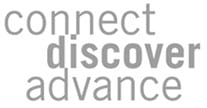Focus on Eyelid Skin Cancers
- Posted on: Mar 15 2021
 Our eyes are truly phenomenal in the way that they adjust to see near and far, in high-light and low-light. While there is a strong bony socket around each eye to protect internal structures, it is up to each individual to protect the thin, delicate skin on the eyelids and around the eyes. This area of the face is more susceptible to nonmelanoma skin cancers caused by harmful UV rays. To reduce the risk of sun damage, children and adults should wear UV-blocking sunglasses, SPF 30 sunscreen, and a big hat when spending time outdoors.
Our eyes are truly phenomenal in the way that they adjust to see near and far, in high-light and low-light. While there is a strong bony socket around each eye to protect internal structures, it is up to each individual to protect the thin, delicate skin on the eyelids and around the eyes. This area of the face is more susceptible to nonmelanoma skin cancers caused by harmful UV rays. To reduce the risk of sun damage, children and adults should wear UV-blocking sunglasses, SPF 30 sunscreen, and a big hat when spending time outdoors.
Have you Been Diagnosed with Eyelid Skin Cancer?
Most eyelid skin cancers are basal cell carcinomas. The good news is that BCCs do not often spread to the lymph nodes or other areas of the body. The bad news is that these tumors can grow so large that they cause disfigurement. A small percentage of eyelid skin cancers are squamous cell carcinomas. This type of skin cancer may spread. Though rare, melanoma may develop on the eyelid or in the eye. Understandably, it can be frightening to be diagnosed with any type of skin cancer anywhere on the body. Eyelid skin cancer is scary but not a reason to panic. Dermatologic surgeons trained in the Mohs Micrographic Surgery procedure can help.
Mohs is the Treatment of Choice for Eyelid Skin Cancer
Mohs micrographic surgery took many years to develop and test. Since it became a routine treatment offered by dermatologic surgeons, it has continued to gain positive praise. The founders of the American Society of Mohs Surgery understand why. Our organization has been established to support the ongoing training that board-certified dermatologists need to treat skin various types of skin cancer. This procedure is the gold standard because it examines 100 percent of the tumor margins at the time of removal. The examination takes place under a microscope while the tissue is fresh and while the patient is still in the office. If the examination indicates cancer cells, another layer of tissue is removed and examined. This process continues until microscopic examination reveals no cancerous cells. This technique is not only more accurate but is also more conservative, making it ideal for all areas of the face, including the eyelids.
We are committed to connecting patients with fully-trained, confident Mohs surgeons and to providing those surgeons with the support and training they need to perform their craft well. To learn more about membership with the American Society for Mohs Surgery or current training events, call (800) 616-2767. To explore our Mohs surgeon directory, click here.
Posted in: Basal & Squamous Cell Carcinoma, Skin Cancer


